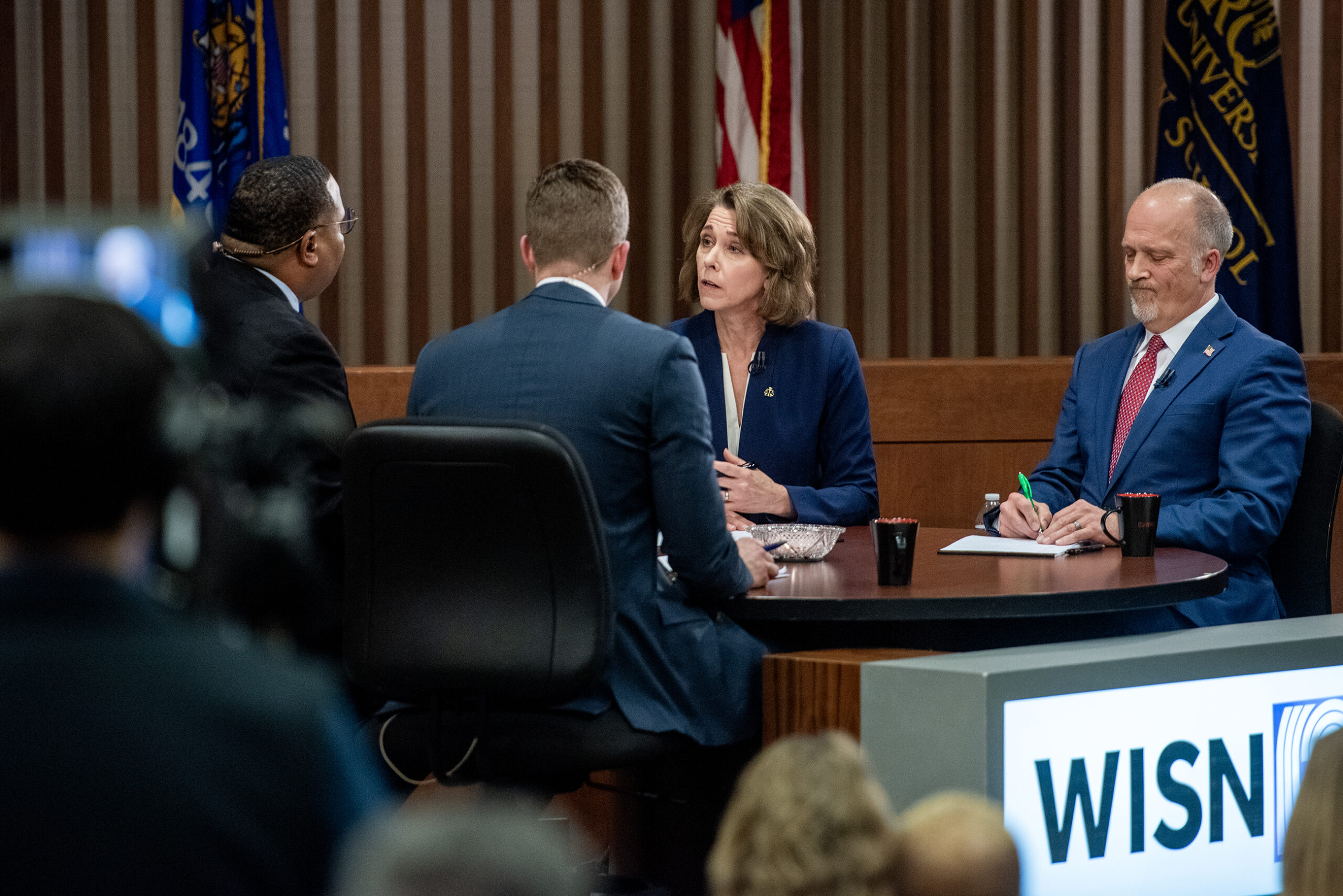The Wisconsin Supreme Court has granted requests by state lawmakers to intervene in a pair of cases that question whether state environmental regulators have the authority to restrict farming operations in order to protect water. The move is likely to put the state’s Republican-controlled Legislature at odds with Evers administration on those cases.
The court, which was divided on the requests, ruled Tuesday that lawmakers could intervene. Justice Brian Hagedorn did not take part in the court’s decision.
Lawmakers granted themselves the power to intervene in cases during a December 2018 extraordinary session. The state’s high court upheld the actions of lawmakers during that lame-duck session after several lawsuits were filed challenging laws passed during that time.
Stay informed on the latest news
Sign up for WPR’s email newsletter.
The first case involves a 2012 request by Kinnard Farms to double the number of cows to more than 6,000 as part of its operations in Kewaunee County. The second case is related to the collective environmental impacts of high-capacity wells that were approved in the state’s Central Sands region between 2014 and 2015.
Last year, Wisconsin Attorney General Josh Kaul withdrew a contested opinion by former Attorney General Brad Schimel in the matter.
In 2016, Schimel determined the Wisconsin Department of Natural Resources can’t consider the cumulative effects of high-capacity wells in a region when considering whether to grant new well permits. The former attorney general said a 2011 law passed by Republican lawmakers limits the authority of agencies to act beyond what’s specifically spelled out in state law.
Schimel’s opinion countered a 2011 Wisconsin Supreme Court case, known as the Lake Beulah decision. Justices ruled in that case that state environmental regulators could consider the collective impacts on groundwater when considering new applications. The ruling came shortly after the 2011 law was passed, and justices found it had no bearing on the Lake Beulah case.
Approval of the wells has prompted scrutiny from environmental groups because they can draw more than 100,000 gallons per day, which has raised concerns over waters drying up in some areas of the state.
The Joint Committee on Legislative Organization must respond on behalf of lawmakers in the cases within 30 days of the court’s order. Oral arguments have not yet been scheduled.
Wisconsin Public Radio, © Copyright 2025, Board of Regents of the University of Wisconsin System and Wisconsin Educational Communications Board.





